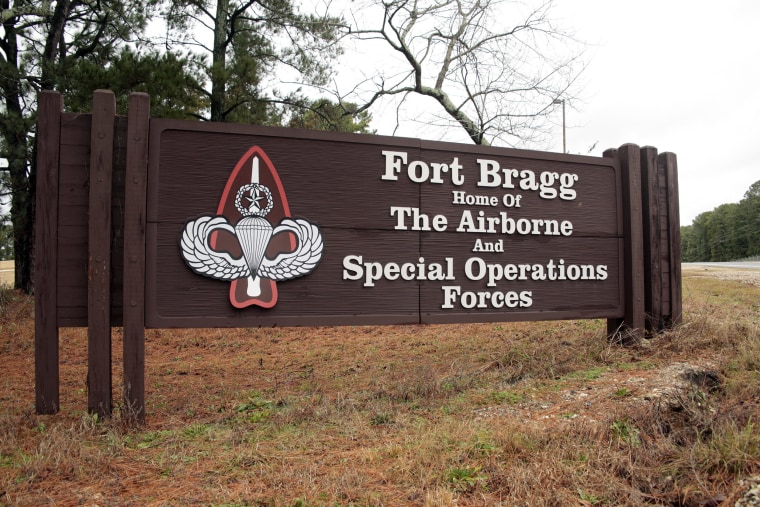There would be something oddly perfect about Donald Trump ending his presidency by rejecting military funding because he's determined to honor those who took up arms against Americans. As NBC News reported this morning, this is a distinct possibility.
President Donald Trump is threatening to veto legislation to fund the military as one of his final acts in office unless a widely supported, bipartisan provision to rename military bases honoring Confederate military leaders is removed, according to White House, defense and congressional sources. Since the Nov. 3 election, Trump has privately told Republican lawmakers that he won't back down from his position during the campaign that he would veto the annual National Defense Authorization Act if it includes an amendment to rename the bases.
Let's revisit our earlier coverage to review how we arrived at this point.
In June, U.S. Army leaders opened the door to renaming military bases after Americans instead of Confederates who took up arms against Americans. Soon after, Trump tried to slam that door shut, insisting he would "not even consider" renaming military bases that honor Confederate leaders. (The president added that naming the bases after Confederates reflects "a history of Winning, Victory, and Freedom" -- suggesting he may not understand the Civil War as well he as probably should.)
Congress, however, didn't take Trump's position especially seriously. Indeed, lawmakers ignored the president's position and added a provision to a massive defense spending bill known as the National Defense Authorization Act (NDAA) that would rename military bases named after Confederate leaders. It was a rare display of bipartisanship: the House passed its version, 295 to 195, while the Senate passed its version, 86 to 14.
Though the House and Senate bills were slightly different, both included a provision to rename the relevant military bases. Also, both bills passed with veto-proof majorities, even after Trump formally vowed to reject military funding if the NDAA included this change.
A White House statement went so far as to argue, "President Trump has been clear in his opposition to politically motivated attempts like this to rewrite history and to displace the enduring legacy of the American Revolution with a new left-wing cultural revolution."
What do the names of Confederate leaders have to do with "the enduring legacy of the American Revolution"? Why would the president's team describe a bipartisan idea that enjoys U.S. military support as evidence of "a new left-wing cultural revolution"? I still have no idea.
Trump tasked Senate Armed Services Committee Chairman Jim Inhofe (R-Okla.) with fixing this for him, but so far, there's been no breakthrough.
So what happens now? In theory, the House and Senate can finish work on a compromise NDAA, pass it, override Trump's veto, and end the drama. But in practice, NBC News' report added that "some Republicans are now shifting their positions to align with Trump," and Senate Majority Leader Mitch McConnell (R-Ky.) may not even bring a vetoed bill to the floor for reconsideration.
If the matter isn't resolved, lawmakers would have to start over in January, delaying, among other things, a pay raise for U.S. troops. Watch this space.

